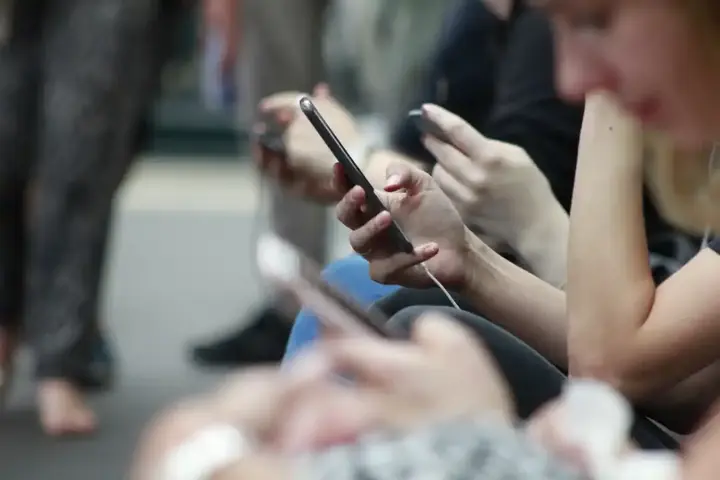Restart your brain: the surprising popularity of "dopamine detox"

Are you bored of being alone with your thoughts? Does the thought of cooking a meal, brushing your teeth, or walking without an audio broadcast, TV show, or music play make you feel cold sweat? If so – according to the trend on social media – you're a great candidate for so-called "dopamine detox.
Show key points
- Dopamine detox involves taking a break from stimuli like social media and entertainment to recalibrate the brain’s reward system.
- Though popular online, dopamine detox is often overhyped with unrealistic promises of life-changing productivity and happiness.
- The practice targets dopamine, a neurochemical tied to pleasure, but its role in addiction and everyday behavior is more complex than detox trends suggest.
- ADVERTISEMENT
- Dr. Anna Lembke explains that overuse of digital media overstimulates the brain’s reward pathways, potentially leading to dopamine deficiency and emotional burnout.
- A more accurate term than "dopamine detox" would be “dopamine recalibration,” as dopamine remains active even during a digital fast.
- Personalizing your detox by identifying which habits most hijack your attention, whether digital or otherwise, is key to a meaningful reset.
- While not a cure-all, even a short break from constant stimulation can offer valuable self-awareness and improve mental habits over time.
What is Dopamine Detox?

This includes identifying behaviors you frequently resort to to get paid quickly — essentially things like social media, gaming, and watching TV — and then taking a break from them for a few days to a week. The goal is to recalibrate the reward pathways in your brain.
Although some evidence suggests that taking a break from certain unhealthy behaviors can be a change, most research focuses on clinical addiction, not on the daily temptations we all face. But that hasn't stopped creators from overestimating science for the promise of unparalleled happiness, productivity, academic success, and plenty of money at digital detox — all unrealistic claims. It's just a temporary break, and while it can be nice, it won't change your life. Real change requires more active action.
Recommend
But if you keep your expectations under control, you may find digital detox to be a useful tool for self-reflection.
The role of dopamine in the brain

Dopamine Detox focuses on a specific chemical in the brain because it is sensitive to stimuli such as social media. Temporarily depriving yourself of such triggers should recalibrate your brain's dopamine stores, thereby making your pleasure centers more balanced, claims say.
Of course, brain chemistry is more complex than that. Dopamine is just a neurochemical that contributes to happiness, and interrupting work for a few days won't recharge your mind. But it may help you identify the triggers you rely on, says Dr. Anna Lembke, a professor of psychiatry at Stanford Medical School and author of Dopamine Nation: Finding Balance in an Age of Tolerance. "When we consume digital media, such as TV shows, TikTok, podcasts and music, they release a lot of dopamine in a specific part of the brain called the reward pathway," she says. When dopamine is quickly sent across this pathway, it releases a feeling good in the brain. Any rewarding incentive — a piece of candy, a "like" on a post, or the beginning of your favorite song — can give you that little success.
This route works best when it reaches a normal level and rises at different points throughout the day, such as meal times. But most of the content on our phones, Lembke says, is designed to activate the reward pathway as hard as possible, which means that repeated use theoretically triggers a "dopamine catalytic proboscis."
Our understanding of how the brain responds to constant stimulation from our organs comes primarily from research on drug addiction, which controls the same reward pathways. "In order to compensate, our brain begins to reduce the regulation of dopamine production and transport, to return it to baseline," says Lempke. Dopamine deficiency, which can result from extreme addictions, can lead to feelings of depression and anxiety. "Now we need to continue to engage in these behaviors – taking up digital media – not to feel good and happy, but just to feel normal," explains Lembke. This is where a detox can be beneficial.
Can Dopamine Detox reset your reward pathways?

Detox" is a misleading term in this context. The word describes the exclusion of something harmful and abnormal, but dopamine, which is synthesized in the brain, is not one of those things, and it is not removed. This practice is also sometimes called dopamine "fasting," and while the goal is to deprive dopamine's reward pathway of constant activation, the chemical is still present and active throughout the brain.
What is actually excluded during this practice is any stimulus that a person hopes to feel less dependent on. A more appropriate (but less attractive) name for routine may be "dopamine recalibration." Truly, it's a commitment to give up bad habits.
Lembki says this recalibration attempt isn't just limited to people who feel compulsive use of media is taking over their lives. "I love that the younger generation is exploring digital detox, and trying to experience what they feel when they're not constantly dealing with our digital devices," she says. "Only by pausing for a while, can we really see how this technology affects our mental health."
Lempki says the most effective "dopamine detox" will be a personalized treatment. Reducing the use of the technology you use most often is an obvious place to start, but dopamine strikes can come from many places. Lempke, for example, says the strongest break she's ever had was from reading romance novels. Although she wasn't on screen, her compulsive approach to their predictable plot points suggested that the hobby had hijacked her reward system. Even after four weeks, long enough to change a habit, she still craved books. After taking stock of her habits, she says, "I was finally able to identify her in listening to pop music, because almost all pop music is love songs. So I stopped listening to pop music, and it really helped me stop wanting romance novels, which helped heal my mind to the point that now I can listen to all kinds of music and not want to read.
If there's a habit or device that you feel is controlling you strongly (for example, going to the bathroom without your phone makes you feel anxious), it may be a good target for this approach.
What to expect during "fasting"

Aside from scientific studies on drug addiction, there is no clear research on what happens when you stop your brain's favorite reward. When it comes to how the brain interacts with social media, Lempke says, "All we really have is our clinical trial."
"When we work with patients who are already pathologically addicted to digital media, they usually feel bad for 10 to 14 days" when they first stop it, she says. After that, she says, patients begin to be able to concentrate again, slow down and enjoy activities that may have seemed boring before, such as quiet walks or cooking a meal. Gradually, because they are not used, the association between behavior problem and dopamine reward becomes weaker, making it easier for people to resume using their devices in a less problematic way.
Much of the self-help content circulating about dopamine detox relies on what we know from clinical treatment for true behavioral addiction, but we know little about how more simple behavioral modifications — such as stopping social media use for a week — will reward the dopamine pathway. For people who aren't addicted, motivational fasting doesn't need to be systematic; there's no right or wrong time to try it. Most importantly, pay close attention to how you feel while doing so, which may help you notice automatic behaviors that may not have been recorded before, such as the habit of crying in a pop song.
Even a temporary retreat can teach us a lot. "We constantly react to external stimuli, which means we don't give our brains a chance to form constant thinking or stay calm long enough to have spontaneous thoughts," says Lembke.








